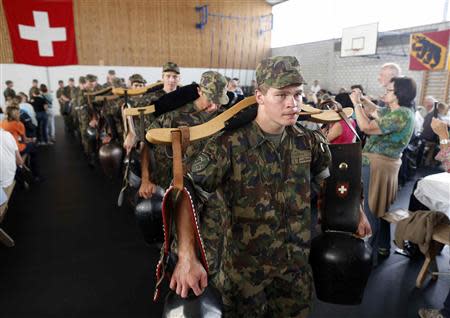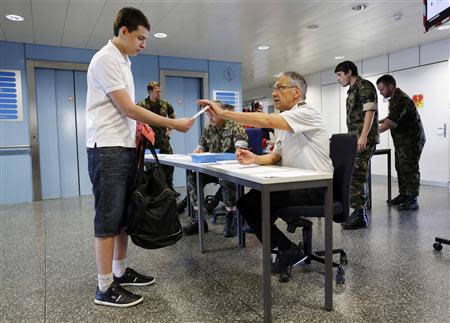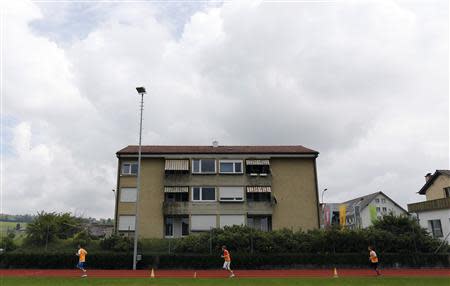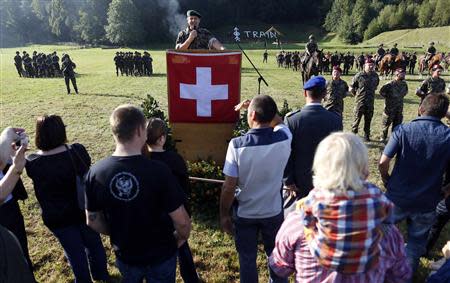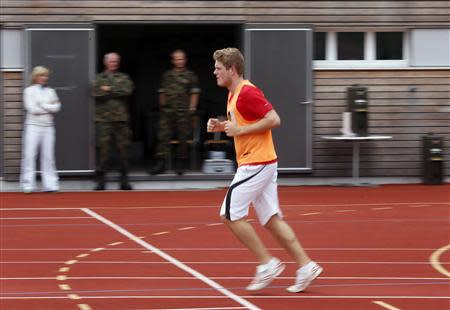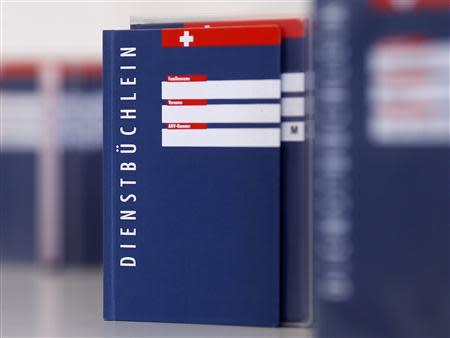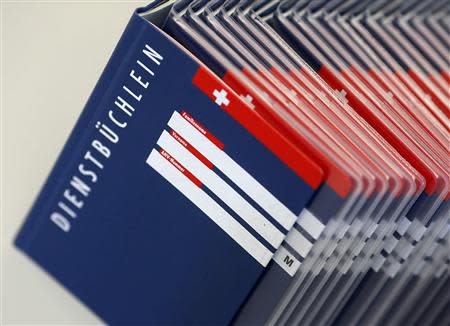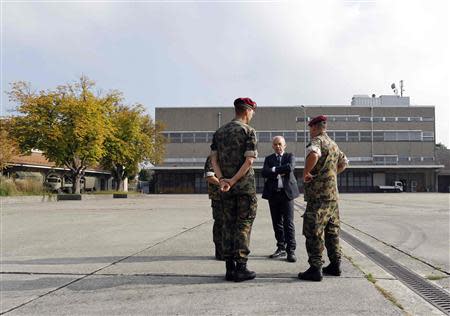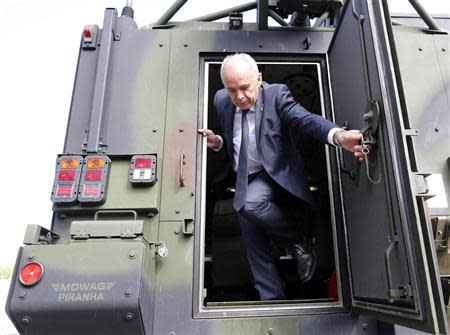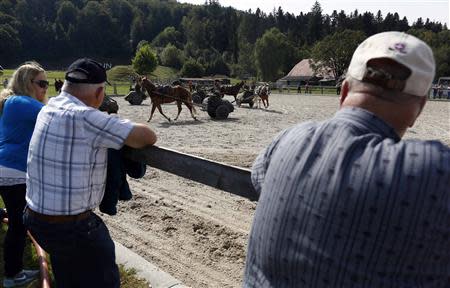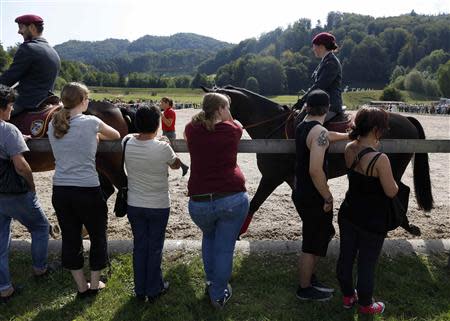Swiss to vote on scrapping social 'glue' of military draft
By Caroline Copley ZURICH (Reuters) - Switzerland hasn't fought a war with an external enemy in 200 years, but its military may now face the biggest battle of its existence - from within. Many Swiss have questioned over the decades why Switzerland needs a military, given the lack of direct threats and long-standing position of neutrality. With 150,000 troops and six percent of the budget, the armed forces are the size of those of Austria, Belgium, Norway, Finland and Sweden - combined. The critics have recently found support from an unexpected quarter - the increasing number of multinational firms who are not happy to see local staff disappear into the conscription militia for around 9 months over the course of their 20s. "Not everyone has time to play war," declares the campaign poster from the pacifist Group for Switzerland without an Army (GSOA). The GSOA has collected the 100,000 signatures needed to force a referendum on September 22 that proposes to scrap conscription and replace it with an all-volunteer army. The armed forces has responded with its own "information offensive". Conscription has long been considered an essential character-building experience for Swiss males. Those selected to serve as officers not only learned discipline and leadership skills, but also made connections that lasted a lifetime in Switzerland's rarefied business world. In early July, executives and human resources managers from foreign companies were invited to watch a military training exercise near Zurich to observe how recruits learn to think strategically, prioritize and work precisely under pressure. "The Swiss army offers the best practical leadership training in Switzerland," Chief of the Swiss Armed Forces, Lieutenant General Andre Blattmann, told a news conference in Berne in August. Josef Ackermann, the former Deutsche Bank CEO who recently resigned as chairman of Zurich Insurance Group, is a fan of the system, once saying in an interview that military service was better preparation for crises and competition than any business school. Ackermann, Zurich Insurance CEO Martin Senn, and Rolf Doerig, who is chairman of staffing firm Adecco and insurer Swiss Life, were all officers in the army. NO SINGLE LANGUAGE, CULTURE Under Swiss law, all able-bodied men are required to take part in compulsory military service between the ages of 18 and 34. Ordinary recruits must complete 260 days of service before they are 34, which is broken down into basic training lasting between 18 and 21 weeks and further yearly refresher courses lasting 19 days. An upper officer may have to complete up to 600 days of service in total, and may serve up to the age of 50. The military says conscription is the glue that binds together citizens who have no single national language or culture. Around two-thirds of the population is German-speaking, roughly 23 percent French-speaking and 8 percent Italian. So far the public seems to agree. Sixty-three percent of those surveyed in a poll published on September 11 said they were against abolishing military service, with just 31 percent in favor. The GSOA, a pacifist group formed in 1982, has organized a referenda on the subject twice before. A poll to scrap the army altogether won 36 percent approval in 1989, but one to replace the military with a peace corps in December 2001 was defeated by 77 percent of voters, a result defenders blamed on the timing, less than three months after the September 11 attacks. Referenda are central to Switzerland's direct democracy and are held several times a year at the national, regional and local level. To pass, an issue must win support from a majority of voters and a majority of cantons. A ‘yes' vote would force the government to make the initiative into law. GSOA spokesman Nikolai Prawdzic said the idea of the military training business leaders and workers was an anachronism in the 21st century. "Decades ago we had a very top-down hierarchy, where you gave orders and people just obeyed. Now the economy has changed ... It's important to work together, but also alone and by yourself without someone always giving you orders," he said. NETWORKS The networking element also appears to have lost some of its gloss. Swiss companies used to look at military service as a way for future managers to make contacts with each other. But the country's business class has been infiltrated by foreigners - just six of the CEOs at Switzerland's top 20 companies hold Swiss nationality - as well as an increasing number of women, who are exempt from the draft. Young people nowadays have other options for training such as internships abroad. "A military service leadership career is not the first selection criteria - those times are over," said Lucas Schellenberg, Swiss country manager at international recruitment firm Stanton Chase. The military plans its own reforms no matter what the result of the referendum. Under a proposal to be debated by parliament in the next few months, the number of troops should shrink to around 100,000 from around 800,000 at the end-1980s. Defence Minister Ueli Maurer said although it was true a direct attack was not likely, Switzerland could be drawn into a conflict due to its location at the heart of Europe and important transport links. In a media tour of a barracks in Lyss in western Switzerland, Maurer said a cyber attack could destabilize the transport network, for example. The military wants to be able to continue to draw on the country's best IT specialists, engineers and laboratory technicians as the nature of conflict changes, he said, and conscription was the key to that. "The army does not consist of people in trenches with bayonets between their teeth who are waiting to defend their native country," he said. ($1 = 0.9321 Swiss francs) (Editing by Sonya Hepinstall)
